Tel: +1 469 836 2108 | Email : drobnakbrass@gmail.com | Login
Rich Matteson (1929-1993)
Jazz Artist on Tuba and Euphonium
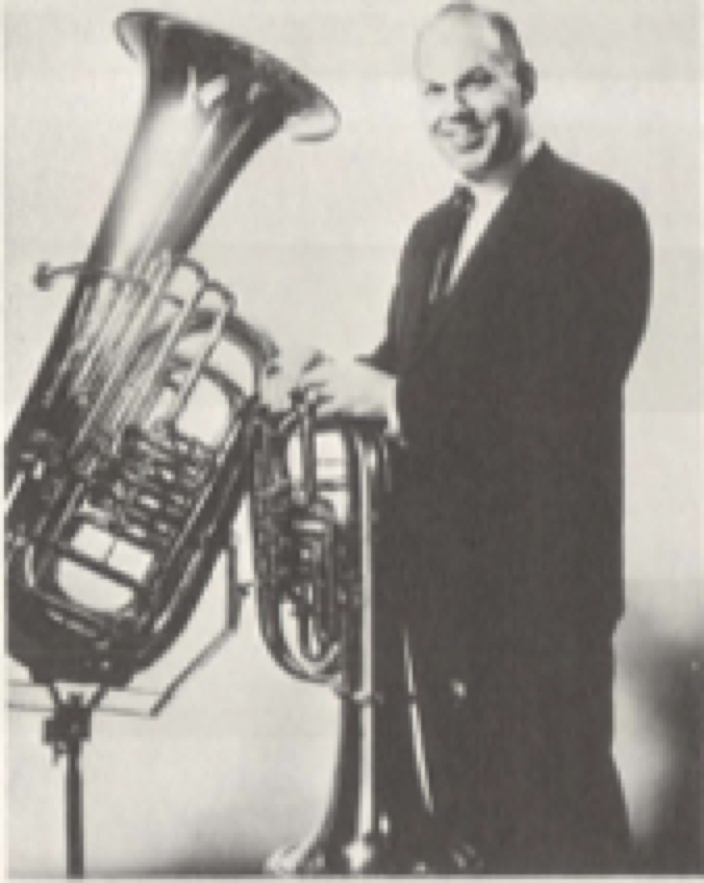
---
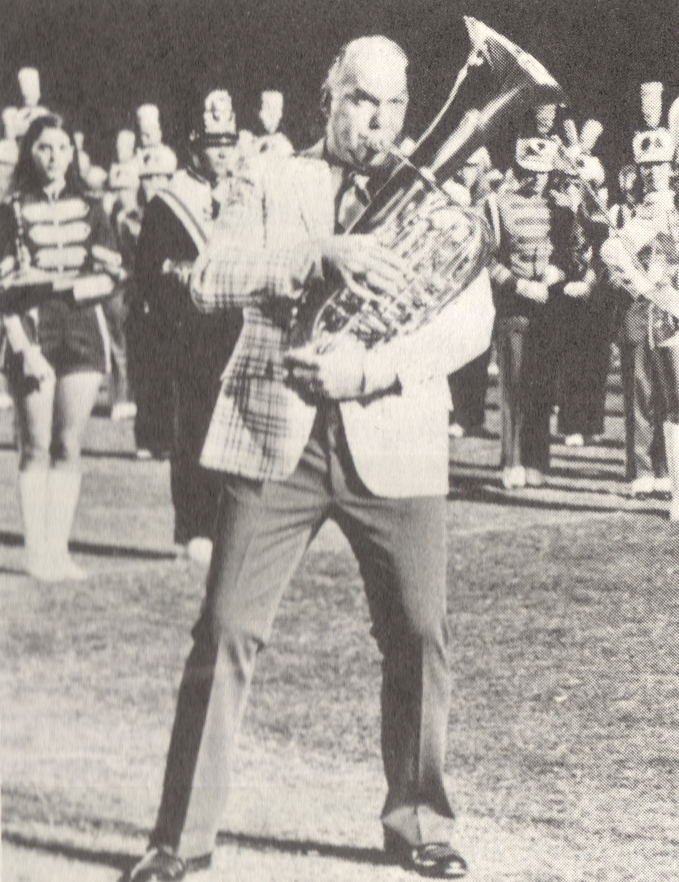
Rich Matteson Jazz Clinic
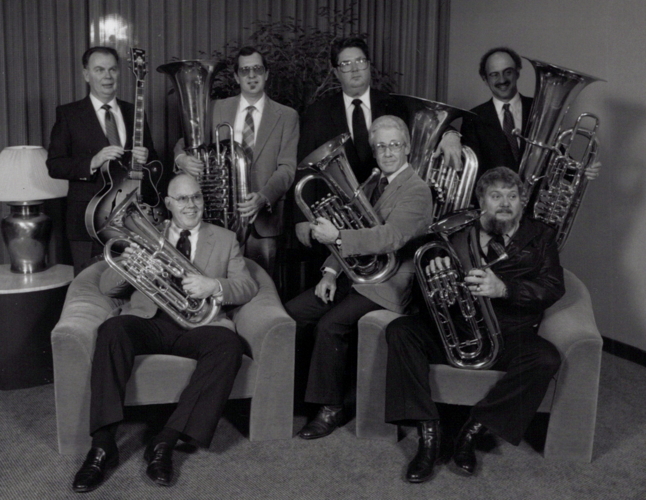
Tuba-Jazz Consort 1970s
Tuba-Jazz Consort LP album
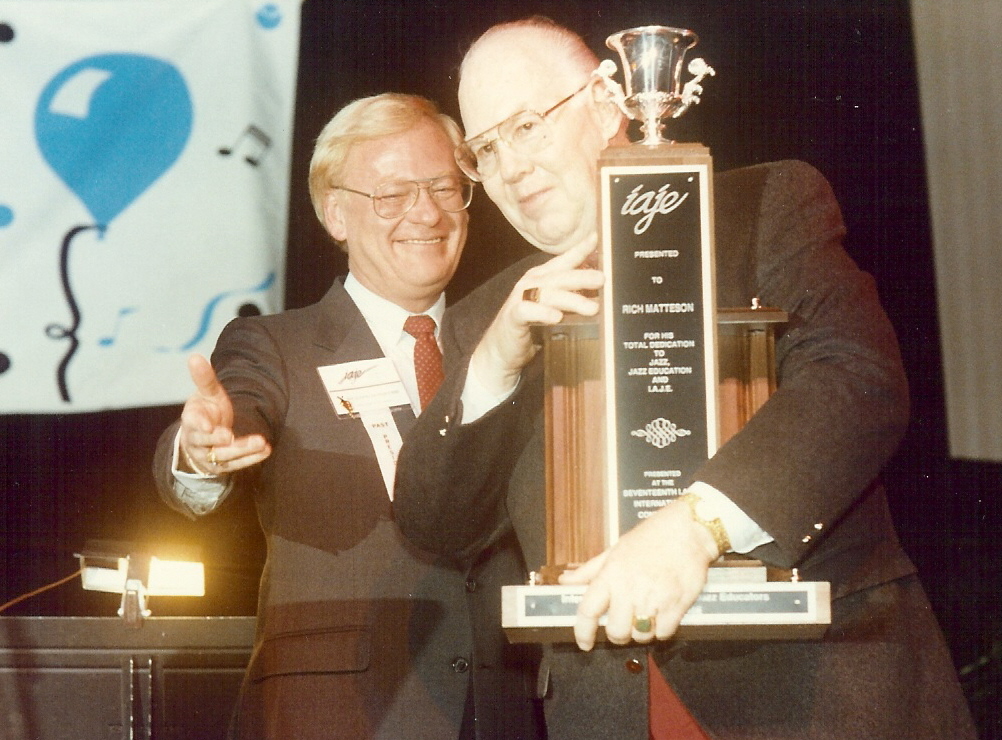
Receiving Hall of Fame Award in 1990
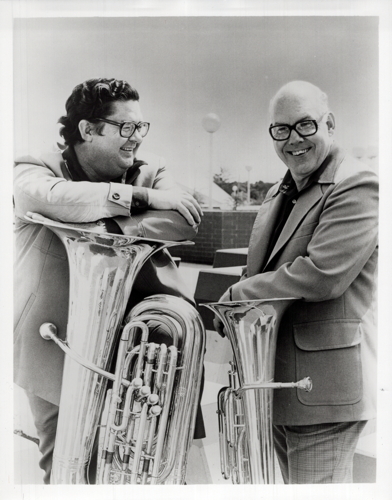
Harvey and Rich
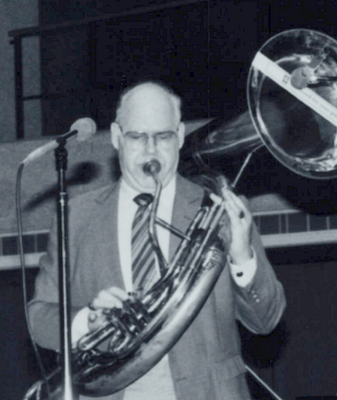
1986 ITEC
Help support this website by buying me a cup of coffee!
International Tuba Euphonium Association Biography
The legacy of jazz musician Rich Matteson will be heard when others perform. Mr. Matteson, who founded the award-winning University of North Florida jazz program in 1986, died June 24, 1993 after a long illness. He was 64.
Mr. Matteson jokingly called himself the best jazz euphonium player in the world because he was the only one. But he'll be remembered as a man who loved music and loved teaching it, and for taking the instrument to new levels of acceptance, having played with jazz greats Duke Ellington, Louis Armstrong, Count Basie, Clark Terry, Louis Bellson, and many others.
Mr. Matteson was honored frequently by the International Association of Jazz Educators and is a member of its Hall of Fame. He was a founding member of the Tubists Universal Brotherhood Association, won the Homer Osborne Award, and was honored as an Ambassador of Jazz by Walt Disney World. Last year he was Down Beat magazine's Lifetime Achievement Award winner. "I guess Gabriel will have to move over," said Harvey Phillips, with whom Mr. Matteson formed the Matteson Phillips Tubajazz Consort. They played all over the world.
Mr. Matteson made his biggest mark as an educator. He began as an associate professor at the University of North Texas, and he gained recognition for the many master classes that he conducted throughout the world. He was brought to Jacksonville when philanthropist Ira Koger asked him to head the new department at UNF. Bunky Green, who succeeded Mr. Matteson as director of jazz studies at UNF, recalled how Mr. Matteson disliked mediocrity. "For Rich, a C wasn't good enough. He'd advise that a student take the class over again." As a player, Mr. Matteson was an inspiration, said guitarist Jack Petersen. "It was just something that was there. When he played, he made you want to play."
Mr. Matteson is survived by his wife, Michelle "Mikki", and four sons, Mark, John, TK, and Chris.
T.U.B.A. Profile - Rich Matteson
by Donald C. Little (TUBA Journal Vol. 5 No. 1)
LITTLE: Would you tell us what you would consider to be your primary professional activities at the present time?
MATTESON: I'm teaching improvisation at North Texas State University and doing clinics in high schools and colleges. Occasionally, I will perform a professional job in a club, and I am beginning to do more and more with the new Matteson/Phillips Tuba Jazz Consort. I do feel that my main job is at North Texas, however.
MATTESON: Well, I joke about it, but I didn't have any choice. I was drafted to play euphonium and tuba because my father was a band director and could not get anyone else to play those instruments. I was very young at the time (about ten) and had been playing French horn in the high school band for several years. My father took me off the French horn and put me on the euphonium and then a little later on the tuba. There was also one summer when he started me on the trombone and then decided he didn't need me there – so it was back to the euphonium.
MATTESON: I graduated from high school and went to Augustana College in Rock Island, Illinois, which did not have a very good instrumental music program at the time. I went there because our family was living in Rock Island and because it was economical for me to go to college and be able to live at home. I played in the band which was probably the only thing I ever really enjoyed at that school. I quit school toward the end of my second semester and took a job working in a shoe store and playing nights when jobs were available. Shortly before I joined the service, I started playing valve trombone six nights a week with a Dixie band. While I was in the service, I played tuba in the 179th Army Band and formed a combo in which I played tuba and valve trombone along with some piano.
